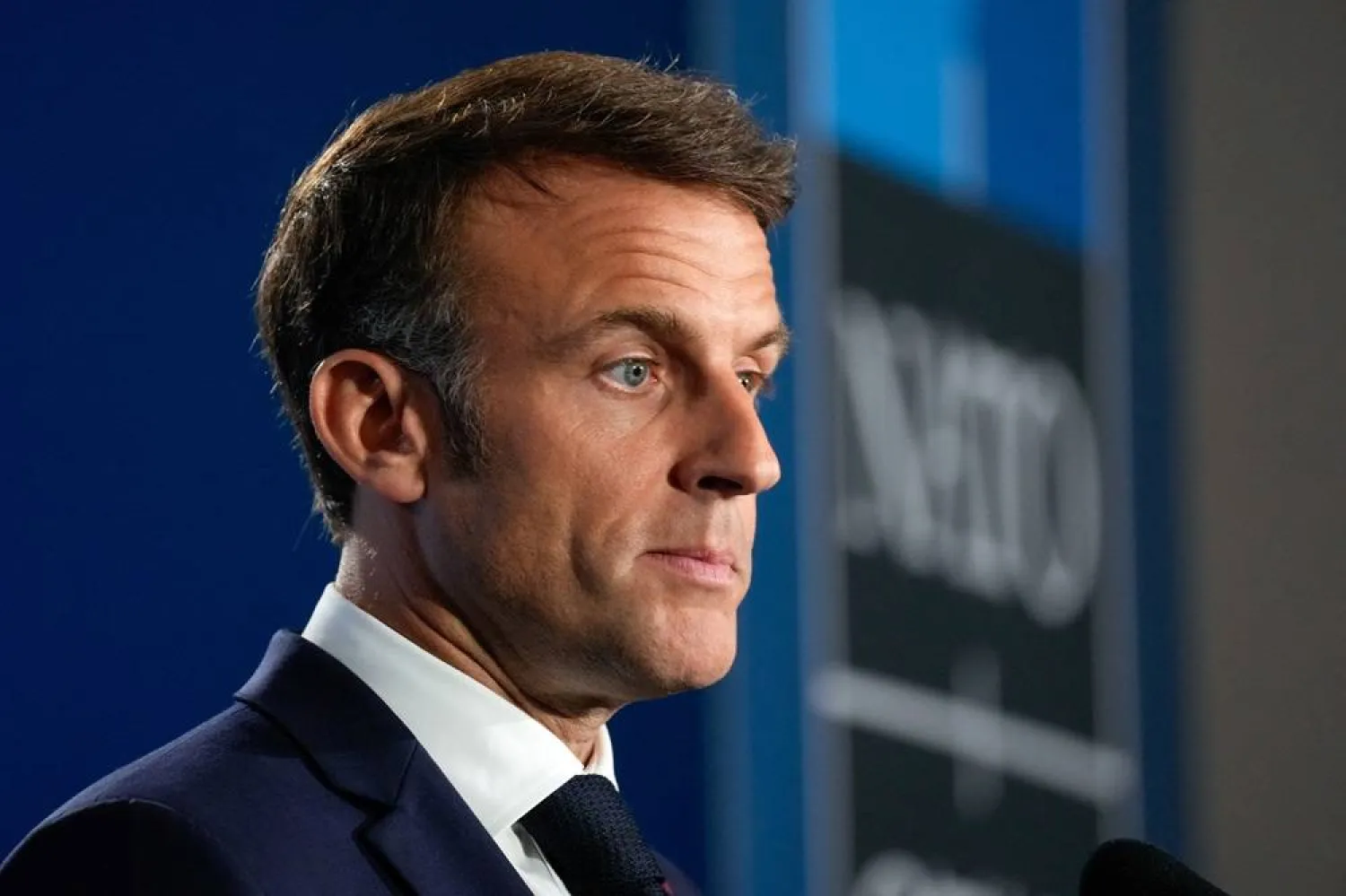French President Emmanuel Macron once shook up NATO by declaring it was suffering "brain death". But his days of such boldness on the international stage may be slipping away after his gamble on a snap election produced political paralysis at home.
At NATO's Washington summit, allies have been left wondering how much of a role Paris can play in the transatlantic alliance in the years ahead, adding to uncertainty stemming from US President Joe Biden's faltering reelection bid and a possible return of NATO skeptic Donald Trump to the White House.
"We all know that wherever in the world, foreign policy begins at home and if at home you have troubles, they will of course affect or impact one way or another your foreign policy abroad," said a European Union diplomat on the summit sidelines.
Macron has kept a low media profile at the summit, with plans to hold just one press conference later on Thursday. Behind the scenes, he was keen to tell allies that the result of Sunday's parliamentary election in France was not as bad as had been feared, as either the far-right nor far-left won an overall majority.
Either outcome would have posed the most severe challenges for Macron's foreign policy with both blocs deemed more pro-Russian and less NATO-friendly. But the election has left France in limbo - with three blocs short of a majority and no new government in sight.
Once a government is in place, it is like Macron will have a prime minister more in tune with his thinking internationally even if he will not have a free hand on foreign policy like in the past.
Three European officials said Macron had taken the time in the North Atlantic Council - the main political decision-making body within NATO - to underscore his message and reaffirm France's support for Ukraine.
That was in stark contrast to five years ago in the run-up to NATO's 70th anniversary, when he stole the headlines after calling the alliance "brain dead" and urging it to wake up after becoming too focused on budget issues instead of evolving geopolitics.
Publicly, other NATO leaders played down France's political troubles.
"It is up to the politicians to find solutions and to make something out if it," German Chancellor Olaf Scholz told reporters. "I'm quite confident."
Officials said Scholz had joked with Macron about the idiosyncrasies of creating and working within a coalition - a persistent headache for the German leader and something that Macron will need to learn in the coming months.
Keen to show Paris is still active internationally, Defense Minister Sebastien Lecornu signed an agreement on the summit sidelines with his German, Italian and Polish counterparts to develop long-range cruise missile capabilities.
"It is an alliance that brings together democracies. So, by definition, in a democracy, faces can change," Lecornu said of NATO when asked whether Macron and France had been weakened.
ELECTION AFTERMATH
But the after-effects of Sunday's election were evident at the summit. Macron was the last leader to arrive, missing a NATO 75th anniversary dinner. He had already scaled back his trip to just 36 hours, having dropped plans to add a visit to Canada.
His foreign minister, Stephane Sejourne, did not accompany him, focusing on his role as the head of Macron's political party back in Paris. Sejourne was not obliged to attend the summit but many other foreign ministers were present.
Several French diplomats said they had lacked instructions in the run-up to the NATO summit and were feeling directionless.
Unlike many other leaders at the NATO gathering and in a marked contrast to his appearance at the G7 summit in Bari a few weeks ago, Macron kept his public words to a minimum.
"Allies. United and in solidarity against Russia's brutal war of aggression in Ukraine. A crucial moment for Europe's security and peace," he posted on X.
A Ukrainian diplomat said "a worst-case scenario" for Macron and Kyiv had been avoided in the French election.
"Yes, he will have his wings clipped and he may not be able to govern, but we have our fingers crossed," the diplomat said.
Asked by reporters about the political situation and its impact internationally, the often-loquacious Macron said only: "By definition, I will not comment on national politics here."
Those were his first public remarks in almost two weeks since a summit in Brussels.
But European officials said that he could not be written off yet and would still be in charge of defense and foreign policy.
With neither the far-right nor far-left winning a majority, in the immediate term the existing government remains in place while negotiations to create some form of coalition to govern take place.
The most likely scenario is a prime minister from the center-left or center-right that would not oppose his Ukraine policy or NATO.
That could enable him to move forward on some initiatives such as sending Mirage fighter jets to Ukraine or creating a coalition of countries to send military trainers there. But there is now at least a question mark over those ideas.
Some officials pointed to a turnaround in fortunes between France and Britain, the latter often seen as a hub of chaos in recent years following its exit from the European Union but now under a new Labour government with a large majority.
Macron met new British Prime Minister Keir Starmer as soon as he arrived in Washington and the two discussed their respective elections, two diplomats said.
"He can be the center of attention and give Britain a new lease of life," one French diplomat said of Starmer.
"For us, it's the opposite. We don't know where we are going."
















